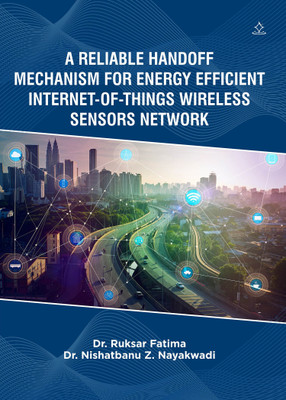A RELIABLE HANDOFF MECHANISM FOR ENERGY EFFICIENT INTERNET-OF-THINGS WIRELESS SENSORS NETWORK(Paperback, Dr. Ruksar Fatima, Dr. Nishatbanu Z. Nayakwadi)
Quick Overview
Product Price Comparison
Enhancing Seamless Connectivity and Intelligent Resource Allocation for Next-Generation IoT Systems The explosive growth of smart applications and Internet of Things (IoT) devices demands a future-ready communication framework that delivers high bandwidth, ultra-low latency, seamless handovers, and optimized resource usage. This book presents a comprehensive solution to mobility management and network resource optimization through the integration of LTE sub-6 GHz and mmWave technologiesŌĆöa crucial step in building reliable and high-performance heterogeneous wireless networks (HWNs). Addressing key challenges such as beam coverage issues, interference, and energy-efficient handovers, this research introduces: The Mobility Aware Handover Execution (MAHE) algorithm using the XGBoost machine learning model, achieving significant improvements in handover success rate, reduced signaling overhead, and better throughput. The Resource Optimized Network Selection (RONS) method, designed to minimize handover failures and enhance Quality of Experience (QoE) through intelligent, load-balanced resource allocation for users of varying priorities. Through detailed experiments and analysis, the book demonstrates how machine learning-based models can revolutionize connectivity in dynamic, real-time IoT environmentsŌĆömaking it essential reading for researchers, engineers, and practitioners in the fields of wireless communications, network management, and smart IoT infrastructure. Key Topics Covered: LTE-mmWave handover optimization Machine learning-based prediction for handover success Energy-efficient mobility support for IoT Load balancing and QoS/QoE trade-offs in HWNs Interference-aware resource selection techniques


